This post may contain affiliate links, meaning that if you click and make a purchase, I may earn a commission at no additional cost to you. Read the full disclosure here.
Last Updated: September 17, 2024
Are you wondering what credit card usage is like in Paris and if you should get euros before your upcoming trip? Is physical cash necessary in Paris as a tourist or will you be fine with credit cards? Here’s what you need to know about payment methods in Paris as a traveler.
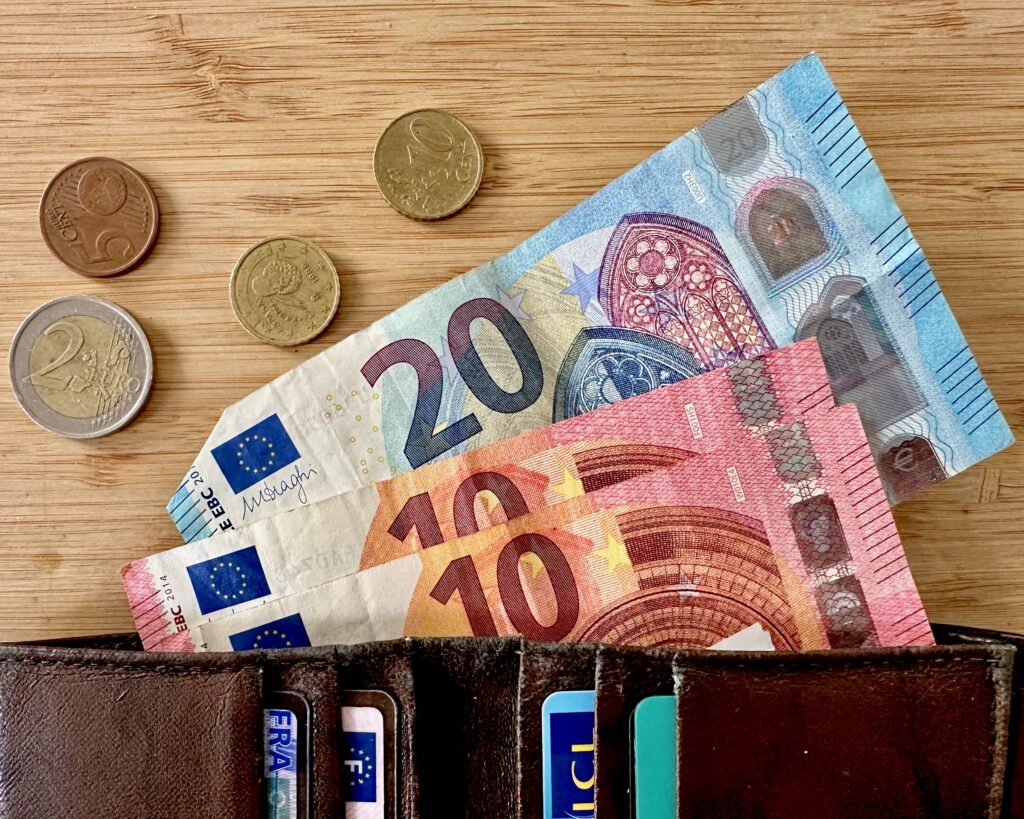
Do you need to bring cash with you to Paris?
If you’re coming from outside of the eurozone, you might be concerned about not having cash on you upon arrival. I completely understand your worry. It used to be common practice to request euros from your home bank ahead of a trip or to get travelers’ checks. Both of these practices are outdated and simply not necessary today.
As long as you have a couple of credit cards and/or debit cards (it’s a good idea to have a backup!), there is no need to bring cash with you to Paris.
Do Paris taxis accept credit cards?
All taxis in Paris must be equipped with a working card reader. Furthermore, a Parisian taxi driver cannot refuse a credit card payment, regardless of the amount. These are legal obligations.
⚠️ Beware of taxis that don’t have card readers or aren’t clear about the flat fee that is charged between the airports and Paris proper. These are well-known tourist scams in Paris!
Before I get into any taxi, I always ask if they are accepting card payments, just to be on the safe side.
Every once in a while, a card reader might actually not work. If this is the case, the taxi driver will bring you to a nearby ATM to take out cash. It happened to Jonathan once and from his experience, he didn’t feel like he was being taken advantage of. The situation seemed genuine.
Are all credit cards widely accepted in Paris? What about Apple Pay or Google Pay?
Paying by credit card is very common in Paris. Visa and Mastercard are the most widely accepted cards throughout France. American Express (Amex) may be accepted in some touristy areas and at big chain hotels. Discover has very low merchant acceptance in France.
Contactless payments (sans contact) have been the norm here in France for longer than in the United States. Since contactless payment is so widespread, mobile payments like Apple Pay and Google Pay are regularly accepted as well.
Aside from making sure you have a Visa or Mastercard, the most important thing to check is whether or not your credit card charges foreign transaction fees. When you’re charged for every transaction, it can add up very quickly!
💡 If you don’t already have a suitable card available, consider opening up an account with Wise, a money transfer service. You can hold money in multiple currencies, request a debit card (physical or digital), and make purchases like you would with a regular card. Their fees and conversion rates are fair and transparent. Learn more about traveling abroad with a Wise debit card HERE.
When do you need physical cash in Paris?
Due in part to Covid, card payments are generally the default in Paris nowadays. Most places tend to assume that that is how you will pay and get the card reader ready automatically. It is rare to come across instances where a credit card is not accepted.
That being said, some stores, bakeries, and cafés might have a credit card minimum of 5, 10, or even 15 euros. If this is the case, a notice is usually posted by the till or the door entrance. A typical sign might read, “CB à partir de 10 euros.” CB stands for carte bancaire.
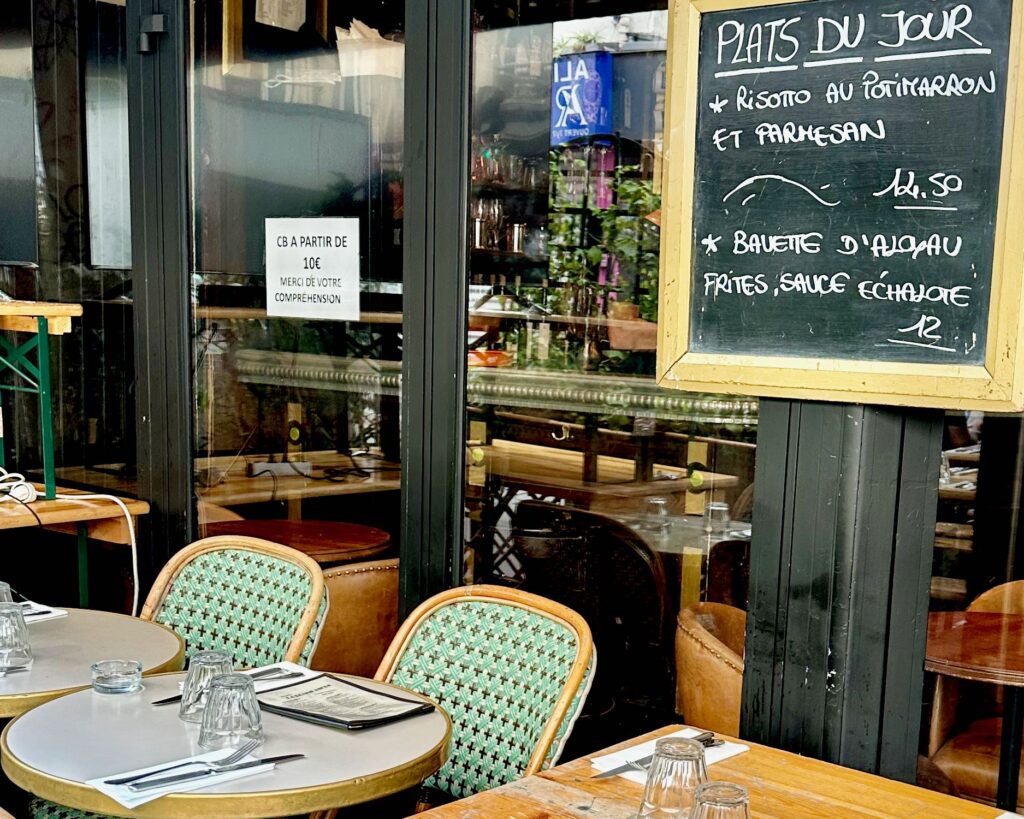
Merchants have the legal right to impose this credit card minimum and can refuse your credit card payment if your purchase hasn’t met the minimum that they have set.
As such, it’s a good idea to have some cash on hand for small purchases. This includes getting a croissant at the bakery, an espresso en terrasse, or picking up some incidentals at a convenience store. Otherwise, you might need to buy 5 croissants instead of the one, which honestly, wouldn’t be the worst thing in the world!
➡️ On a personal note, I feel awkward paying by card if my total only comes to a couple of euros, but many cashiers won’t blink an eye if you whip out your card! Indeed, my French hubby, who never carries cash, has often paid for a baguette by card and that costs less than 2€.
If you plan to visit any markets in Paris, having physical cash on hand is advisable. This goes for flea markets and food markets.
At food markets, many vendors will only accept cash payments. This is especially true of fruit and vegetable sellers. Stalls where you typically spend a bit more money, such as at the cheesemonger, fishmonger, or butcher, may have a card payment terminal.
How should you get cash?
The best exchange rate you’ll find is directly from a local ATM at a bank. There are banks all over Paris where you can withdraw cash. Although banks have limited hours, even in the capital, there is often ATM access outside of posted operating hours. Sometimes, you can still go inside the foyer of the bank even when the establishment itself is closed.
Before traveling, check if your bank debit card charges for foreign transaction fees and international ATM withdrawals. In the past, I’ve used a Charles Schwab debit card for this purpose. Not only does Charles Schwab Bank not charge foreign transaction fees, but they also refund ATM fees worldwide.
This would be another instance of when a Wise debit card would come in handy. In addition to using it to make purchases, you can also use it for ATM withdrawals.
If you’re in a pinch, you can generally use a credit card to withdraw money from an ATM as long as it has a PIN code. You might need to request one ahead of time. However, note that this type of transaction is usually categorized as a cash advance and may incur high fees.
Avoid exchanging your home currency for euros in Paris. Money exchange shops usually give the worst conversion rate.
How much cash will you need in Paris?
This is a very personal question and hard to answer! It depends on your spending habits, your plans in Paris, and the duration of your stay.
If I were traveling to Paris as a tourist, I would feel comfortable taking out about 60-80 euros from the ATM to have as backup for myself during a week or so. As much as possible, I’d pay by card so that I could have the physical money set aside in the event of an emergency pain au chocolat situation.
60 euros might seem like a random number, but I tend to avoid multiples of 50 just in case the machine only wants to spit out 50 euro bills. Smaller bills tend to be more practical!
⚠️ Merchants in France can refuse a cash payment of a large bill if they don’t have change. This is one of the only times a cash payment can legally be refused in France.
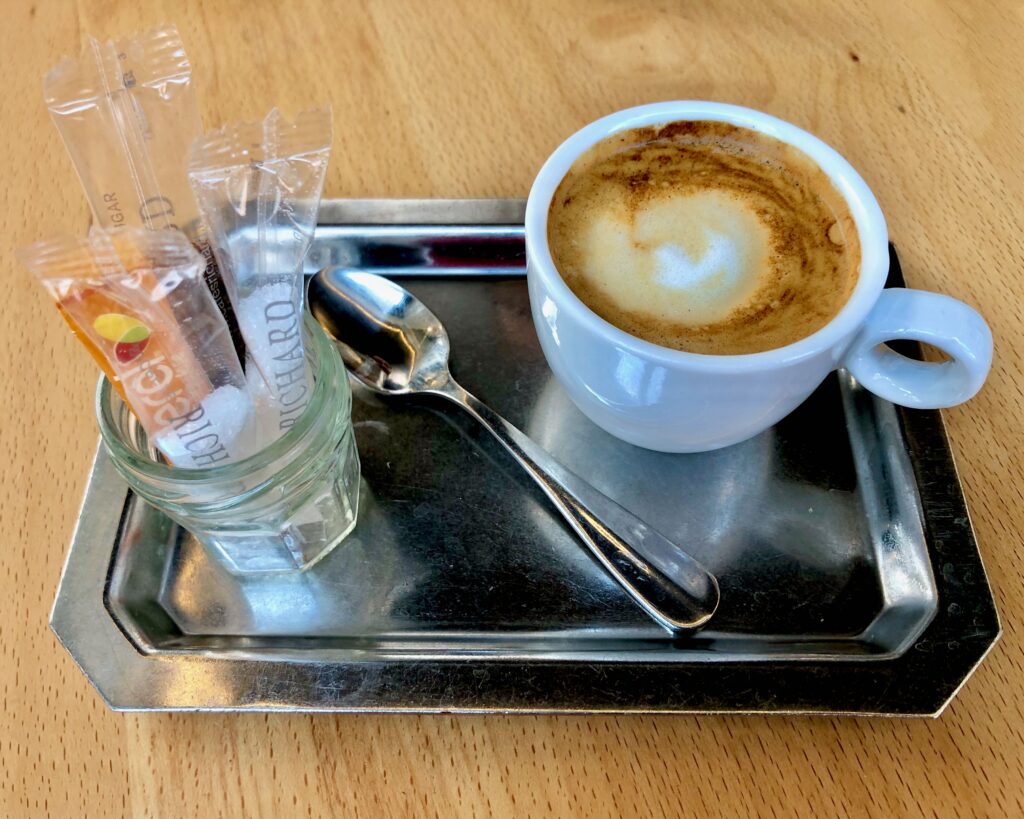
On a related note, it’s not a bad idea to break a bill with a small purchase at a café or boulangerie. This way, you’ll have some change in coins in the rare event you come across a pay toilet. While pay toilets are way less common in Paris than they used to be, you might encounter one in a shopping mall or train station. Free public toilets are all over Paris, but it’s always harder to find one when you truly need it!
Want more practical tips for your trip to Paris?
Quick Tips for Making Payments
- Always pay in the local currency! If you’re paying with an American card, you’ll likely be offered the choice to pay in USD or euros. You’ll get a better exchange rate if you choose euros.
- French bank cards function with a PIN code verification whereas U.S. debit and credit cards typically require a signature upon purchase. The person handling your card may or may not notice that you need to sign the receipt. This depends on if they are used to American tourists. Most often, if you’re outside of a tourist area, they won’t even have a pen handy since signing for a purchase in France is unusual!
- Your card will never leave your sight in France. If you’re at a restaurant, the server will bring the card reader terminal right to you! Or they may ask you to go up to the register to pay.
- Splitting the cost at a restaurant between friends is not a problem at all! Just let the server know. They can ring each person up individually according to what they ordered or they can do an equal split of the cost. This is common practice in Paris.
- Tipping is not expected in France and you should never feel pressured to leave a tip. Usually, I don’t leave any tip for a meal in a restaurant. I might leave a tip if I only had a coffee and sat around for a while on the terrace long after my drink was gone. In this case, rounding up or leaving a euro or two would be appropriate since in these cases, you’re paying for the experience. If you’re settling up by card, you can ask for them to punch in the total amount you’d like to pay. Unlike in the United States, there’s no option to add a tip on later, so it must be done with the initial payment.
What was your experience with making purchases in Paris? Did you run into any tricky situations?
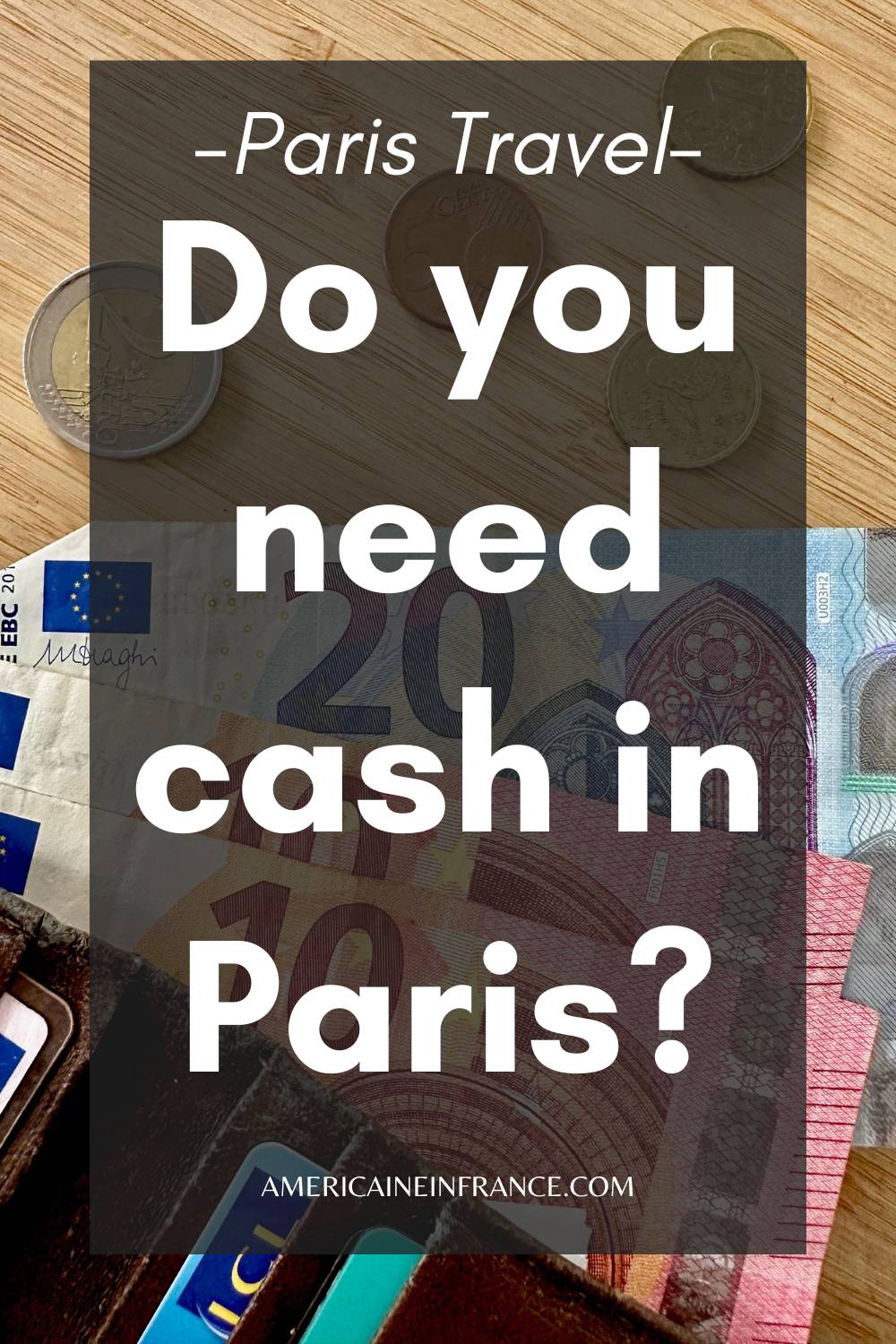
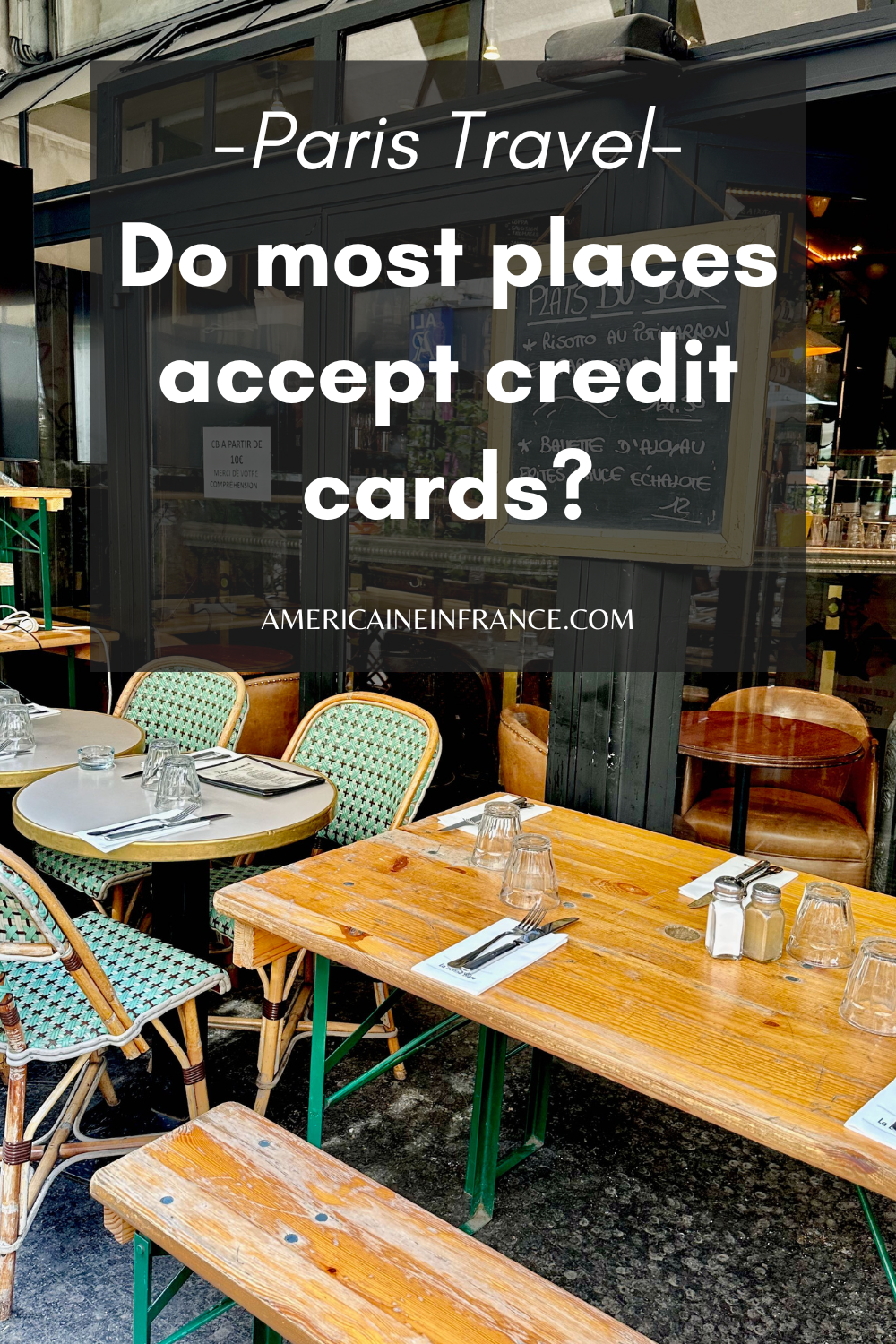
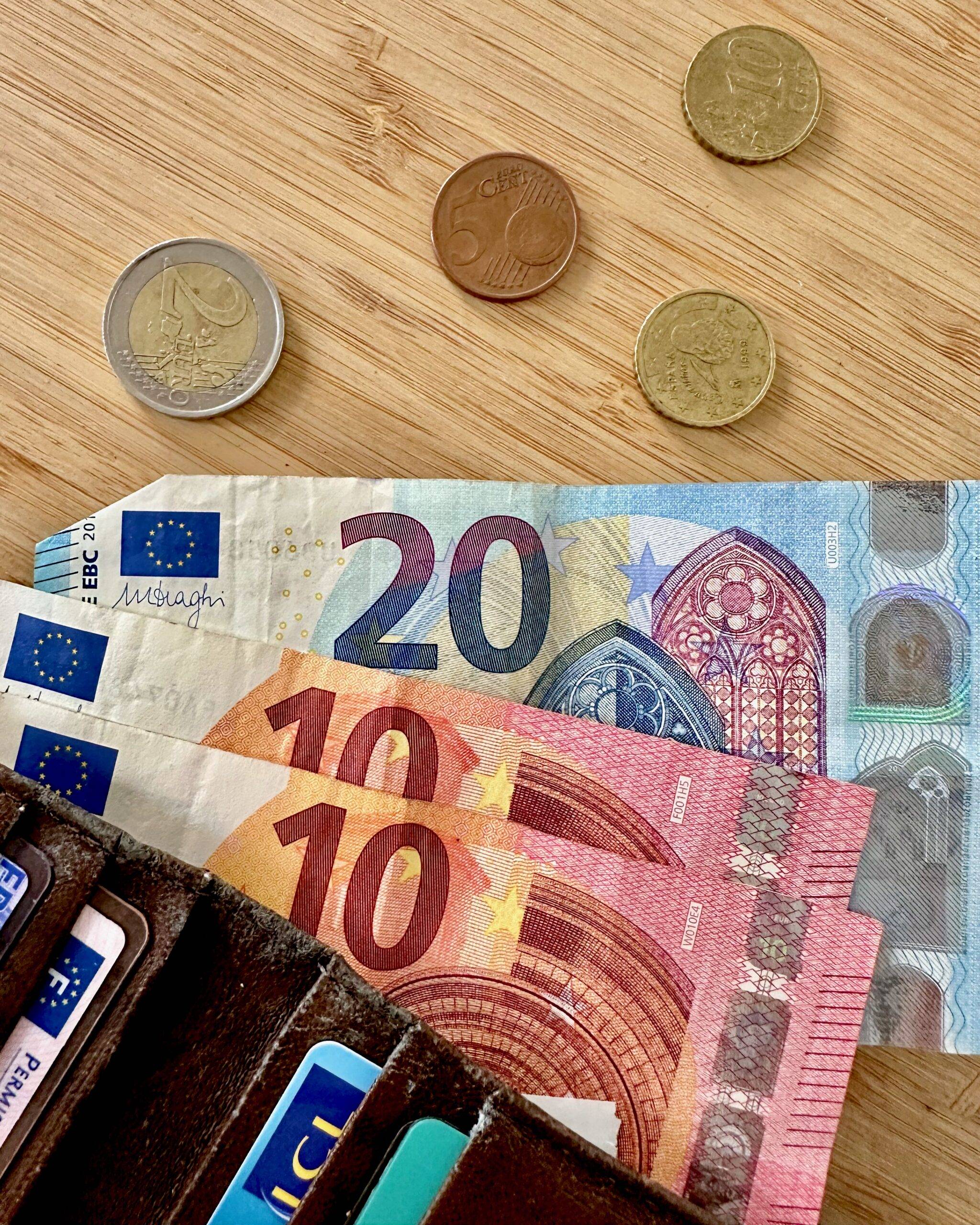
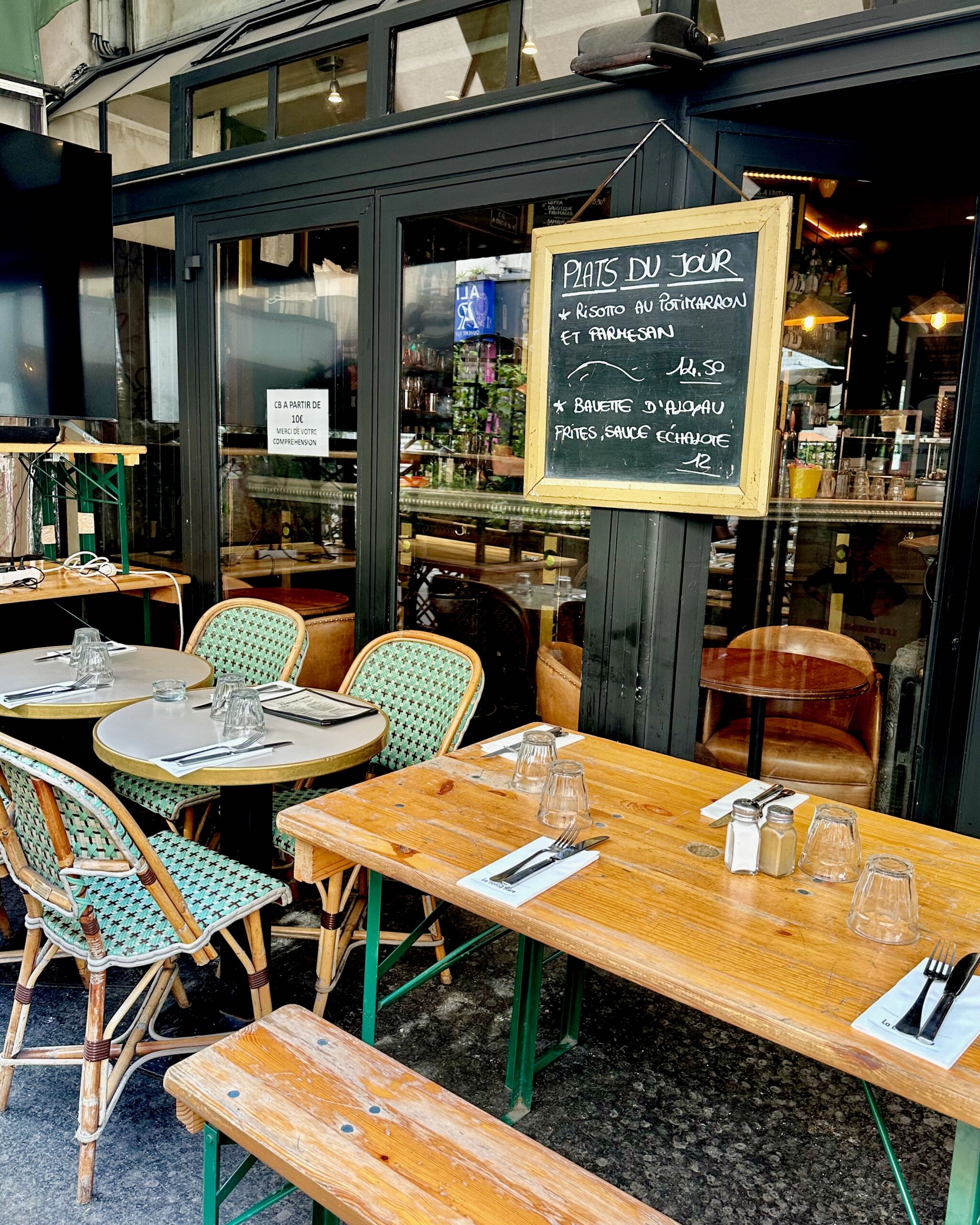
agreed that cash isn’t necessary, but I always try to carry 100 with me, it can get you out of almost any situation 🙂
That’s smart 🙌🏻 It’s good to be prepared.
Nice article Ellen. One caution though, during my last trip to Paris, i took a taxi from the Musée D’Orsey to my apt about a 2.5 kilometer ride. Normally I’d walk but my feet were aching thus the cab. I wanted to pay with euros but he said he didn’t have change of a 20 so I paid with my Barclay bank master card. He rung it up twice saying it didn’t work the first time and gave me a receipt for 8.10€.
I routinely check my accounts on line daily and save all receipts. The next day master card indicated a 810.00€ charge which I disputed. I took me almost 7 months to get it rectified as the bank said my card with chip was used.
Later I learned that this type of scam has been happening by taxis in paris. Lesson to share is always get a printed receipt and check your accounts daily.
All best. Joe DiPrimio.
Great suggestion, Joe! Glad you were able to get that sorted. I hate hearing about people being taken advantage of like that.